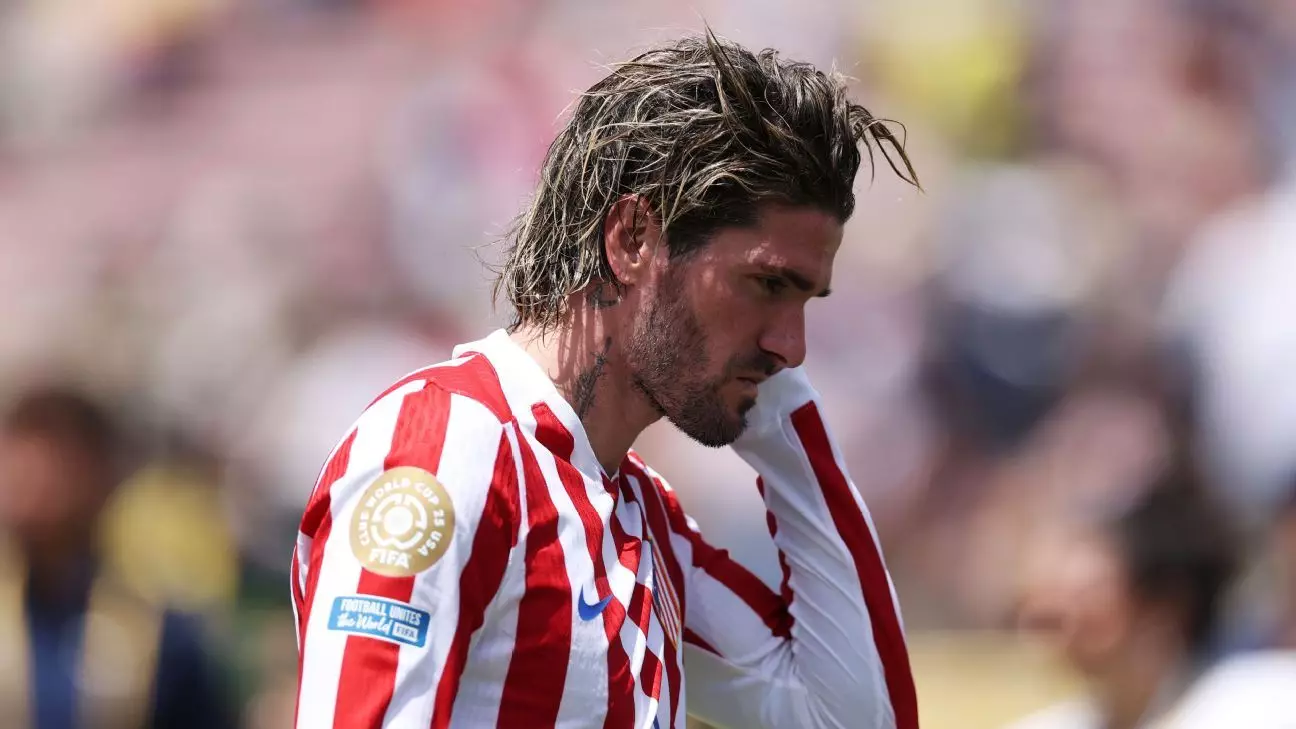Inter Miami’s ongoing negotiations exemplify their ambitious vision to elevate Major League Soccer to new heights. The club’s management, led by co-owner Jorge Mas, is actively pursuing high-profile talent, specifically targeting Atletico Madrid’s Rodrigo De Paul. This move is not just about adding a star; it’s a calculated effort to reshape the team’s identity and competitiveness on a continental scale. By engaging in talks with Atletico Madrid, Miami demonstrates a commitment to bringing in proven international performers, signaling that their aspirations extend far beyond conventional MLS boundaries. This approach challenges the league’s traditional recruiting patterns and sets a precedent for other clubs to pursue global stars, emphasizing a relentless pursuit of excellence.
Building a Competitive Edge: Leveraging Star Power and Strategic Flexibility
Miami’s roster considerations reveal a nuanced understanding of the league’s structure, particularly regarding their allocation of Designated Player spots. Currently, the team has Lionel Messi, Jordi Alba, and Sergio Busquets occupying these slots. To make room for De Paul, they would likely have to make difficult decisions—most notably, releasing Busquets or renegotiating Messi’s and Alba’s contracts. This underscores Miami’s prioritization of short-term impact over long-term roster stability. The club’s willingness to entertain releasing legendary figures like Messi and Busquets reflects a broader philosophical shift: the belief that to reach the top, sacrifices must be made. Such moves are risky but could catalyze the team’s transformation, inspiring confidence that Miami is prepared to reevaluate traditional roster norms in pursuit of greatness.
De Paul’s Dilemma: The Battle of Ambitions and Loyalty
At the heart of this transfer saga is Rodrigo De Paul—a talented midfielder at a crossroads. Atletico Madrid is eager to retain him but faces a ticking clock, as De Paul’s contract expires in 2024. The player’s potential transfer to Miami hinges not only on contractual negotiations but also on his personal ambitions. While Atletico considers him a vital piece under Diego Simeone’s tactical plans, De Paul’s Argentine compatriots, including Messi, could influence his decision. The allure of joining forces with Messi in Miami offers a compelling calling card, yet the financial gulf—particularly regarding transfer fees—poses a significant obstacle. Atletico’s reluctance to lose De Paul for free next year underscores the club’s desire to maximize their assets, but they are also aware of the player’s dissatisfaction and the strategic importance of holding onto him.
Implications for Atletico Madrid and the Broader Market
The potential departure of De Paul would send ripples through Atletico Madrid’s squad. Coach Simeone values his style of play and team chemistry, especially considering his close connection with fellow Argentine Julián Álvarez. The loss of De Paul could force Simeone to identify alternative midfield options, such as Valencia’s Javi Guerra, to fill the void. Moreover, Atleti’s recent signings—like Alexander Baena and Clément Lenglet—highlight their strategic effort to build a balanced team, but losing a player of De Paul’s caliber could destabilize their mid-term plans. The transfer also reflects the shifting landscape of global football, where clubs are increasingly open to losing key players in favor of lucrative opportunities abroad.
MLS’s Evolving Landscape: The Power of International Stars
Miami’s aggressive pursuit of De Paul is emblematic of the league’s broader evolution. The MLS is increasingly seen as a viable, lucrative, and competitive destination for world-class talent. The league’s international appeal is bolstered by star power like Messi, Alba, and Busquets, who attract media attention and elevate the quality of play. Miami’s willingness to spend and strategize around such high-profile acquisitions marks a turning point: the league is no longer a developmental stopgap but a destination capable of hosting some of the game’s biggest names. This transformation could reshape perceptions of North American soccer, challenging existing hierarchies and fostering a more competitive, globally connected league.
The Future of the Miami Project: Risks, Rewards, and the Hunt for Glory
Miami’s pursuit of De Paul illustrates a broader philosophy rooted in ambition and risk-taking. The club recognizes that to be the best in the hemisphere, it must assemble a constellation of stars capable of competing at the highest European levels. Yet, this strategy is fraught with uncertainties. Releasing seasoned players like Messi or Busquets could have ripple effects on team chemistry and leadership, while the financial implications of such moves are significant. Nevertheless, Miami’s management appears undeterred, driven by the conviction that these investments are necessary to forge a legacy. If successful, Miami could disrupt the traditional power dynamics of North and South American soccer, positioning itself as the league’s most formidable contender and redefining what success looks like in the MLS.

